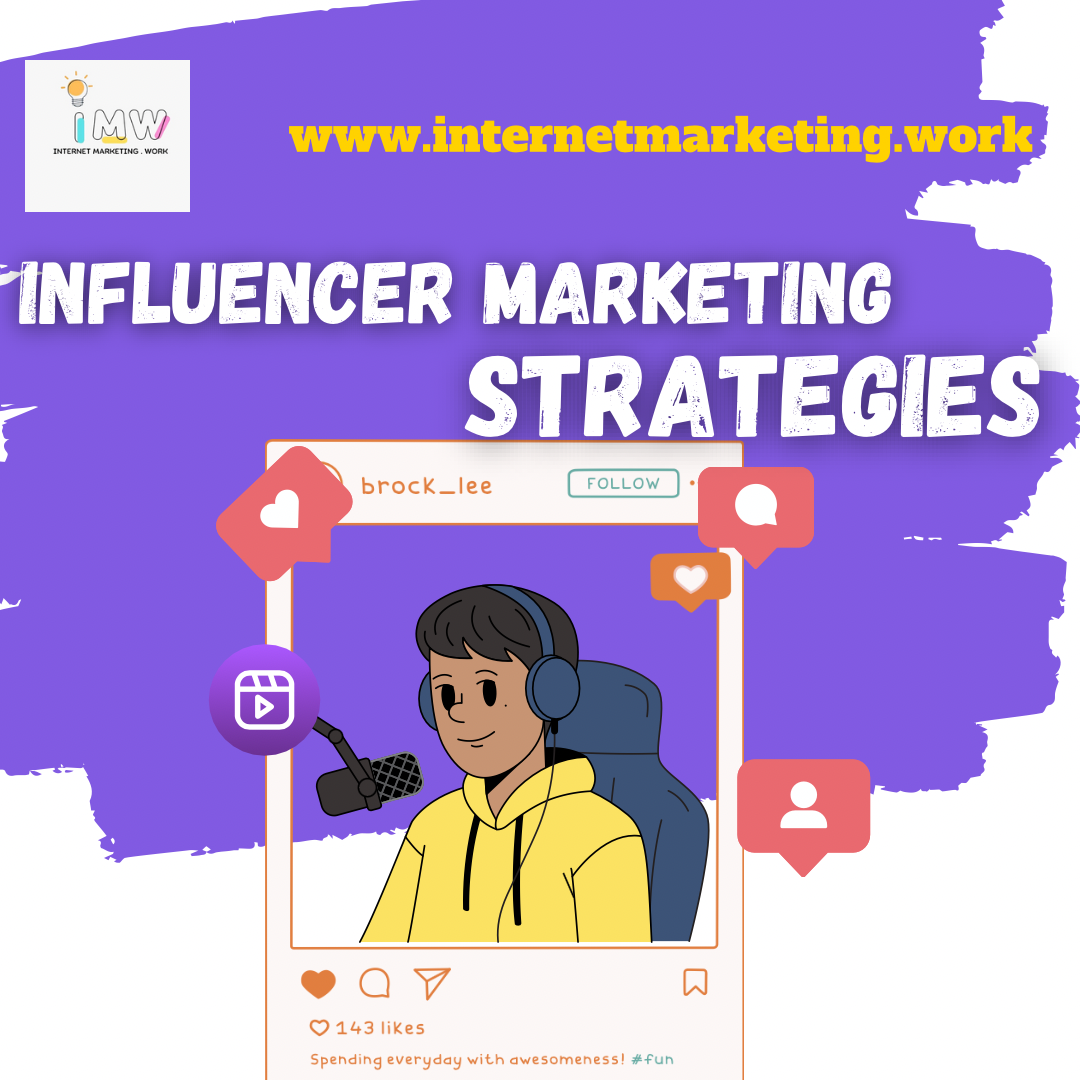Influencer marketing strategies has emerged as a powerful strategy for brands to connect with their target audience and drive engagement. By partnering with influential individuals who have a strong following and credibility within their niche, brands can leverage their reach and influence to promote products or services authentically. In this comprehensive guide, we’ll explore the principles of influencer marketing and provide actionable strategies for leveraging influential partnerships to achieve business objectives.

Understanding Influencer Marketing
Influencer marketing involves collaborating with individuals who have a significant following and influence on social media platforms such as Instagram, YouTube, TikTok, and Twitter. These influencers, often referred to as content creators, bloggers, or social media personalities, have built a loyal audience around their niche interests, passions, or expertise. By partnering with influencers whose audience aligns with their target demographic, brands can reach potential customers in an authentic and engaging way.
The Benefits of Influencer Marketing
There are several key benefits to incorporating influencer marketing strategies into your overall marketing strategy:
Increased Reach and Visibility: Influencers have built-in audiences that trust and engage with their content regularly. Partnering with influencers allows brands to tap into their reach and visibility, expanding their brand presence to new audiences.
Enhanced Credibility and Trust: Influencers have built strong relationships with their followers based on authenticity and trust. When influencers endorse a product or service, their recommendations carry weight and credibility, leading to higher trust and engagement from their audience.
Targeted Audience Engagement: Influencers often have niche-specific audiences with shared interests and passions. By partnering with influencers within your niche, you can target your message to a highly engaged and relevant audience, increasing the likelihood of conversion.
Authentic Content Creation: Influencers are experts at creating engaging and authentic content that resonates with their audience. By collaborating with influencers, brands can leverage their creativity and storytelling abilities to create compelling branded content that drives engagement and fosters brand affinity.
Measurable ROI: Influencer marketing strategies campaigns can be tracked and measured using various metrics such as reach, engagement, clicks, and conversions. By analyzing campaign performance, brands can assess ROI and optimize future campaigns for better results.
Key Influencer Marketing Strategies
Identify the Right Influencers: Take the time to research and identify influencers whose audience demographics, interests, and values align with your brand. Consider factors such as follower count, engagement rate, content quality, and audience demographics when evaluating potential influencers for collaboration.
Set Clear Objectives: Define clear objectives and key performance indicators (KPIs) for your influencer marketing strategies campaigns. Whether your goal is to increase brand awareness, drive website traffic, or boost sales, setting clear objectives will guide your strategy and measure success.
Build Authentic Relationships: Approach influencer partnerships as collaborative relationships rather than transactional exchanges. Take the time to build rapport with influencers, understand their audience and content style, and develop authentic partnerships based on mutual respect and trust.
Create Compelling Content: Work with influencers to create compelling and authentic content that resonates with their audience while showcasing your brand in a positive light. Encourage influencers to incorporate your brand messaging organically into their content in a way that feels genuine and authentic.
Track and Measure Performance: Utilize tracking tools and analytics to monitor the performance of your influencer marketing strategies and campaigns. Track metrics such as reach, engagement, clicks, conversions, and ROI to assess campaign effectiveness and optimize future strategies.
Case Studies and Examples
To illustrate the effectiveness of influencer marketing strategies, consider including case studies or examples of successful campaigns:
Fitness Brand Collaboration: A fitness brand partners with a well-known fitness influencer to promote its new line of workout gear. The influencer creates engaging content showcasing the product in action, resulting in increased brand awareness and sales.
Beauty Product Endorsement: A beauty brand collaborates with a popular beauty blogger to promote its latest skincare line. The blogger shares her honest review of the products with her audience, resulting in high engagement and a surge in product sales.
Travel Destination Promotion: A tourism board partners with travel influencers to showcase the beauty and attractions of a destination. The influencers create captivating content highlighting their experiences, leading to increased interest and bookings for the destination.
Conclusion: Maximizing Influencer Partnerships
In conclusion, influencer marketing strategies is a powerful strategy for brands to connect with their target audience, increase brand awareness, and drive engagement. By leveraging influential partnerships and implementing strategic influencer marketing strategies, brands can amplify their message, reach new audiences, and achieve their business objectives effectively. As influencer marketing strategies continues to evolve and grow, brands that embrace this trend and build authentic relationships with influencers will be well-positioned to succeed in the competitive digital landscape.


